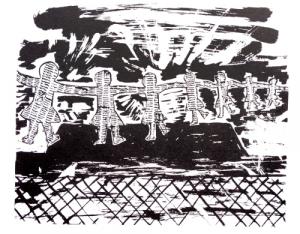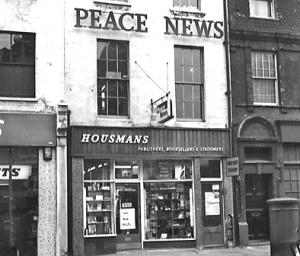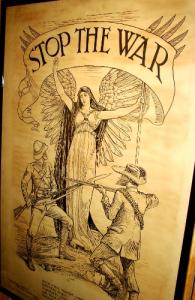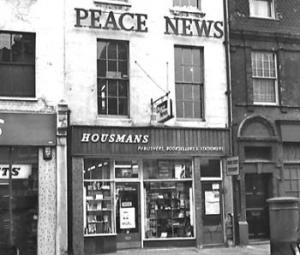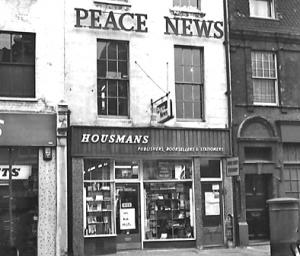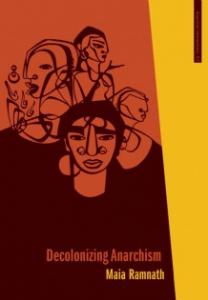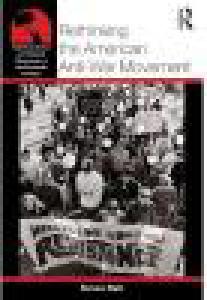A £98,000 heritage lottery fund grant to the Peace Pledge Union (PPU) attracted some press attention in September. The grant will enable the PPU to carry out a two-year project to encourage communities and schools across Britain to research local conscientious objectors (COs) during the First World War. There was a debate in the Guardian, the Times, the Telegraph and even Le Monde (France) on using publicly-subscribed money in this way – rather than in…
Activist history
Everything looked so different, with trees and bushes grown taller, paths diverted and gates moved. I drove straight past Orange Gate where I had spent many weekends and holidays during the 1980s, sitting round the smoky camp fire, planning actions, cooking vegetable stews, singing songs, getting stoned.…
I finally found my way back to the gate, of which only a metal fence post…
Parecomic: The Story of Michael Albert and Participatory Economics is a clear, thoughtful and compelling introduction to some of the most challenging ideas around, and to an inspiring life of radical construction. After leading revolutionary student activism in the top scientific university in the US, MIT (the sanctuary described above had a huge impact), Michael Albert was…
I read the letter from Mary Winter [who had accused men’s groups of being ‘the counter-attack on the Women’s Liberation Movement’] with anger, then amazement, and finally with sadness. It seems that not only do male readers not know much about the women’s movement but also some female readers not know much about ‘Men Against Sexism’.
‘Men Against Sexism’ (MAS) avoid the use of the term men’s liberation because it does sound arrogant and does not make clear the great…
While the world was aggressively preparing for the First World War between 1900 and 1914, many people and organisations in Britain and Europe were boldly campaigning for peace. This is not generally remembered because that war destroyed so much, even the memory that many people had tried to stop it happening.
So amongst the military and political pressures of preparing for war, with its Boer War inadequacies, Dreadnought battleship-building, Baden Powell boy-scouting and much more,…
Fletcher went to Kenya in December 1954 as a colonial social worker ‘rehabilitating’ women and girls in British detention camps and prisons for Mau Mau militants and sympathisers. She resigned in protest after trying to improve conditions for seven months.
Labour MP Fenner Brockway waved a copy of Peace News in a house of commons debate on Kenya on 6 June 1956, quoting Fletcher.
Fletcher had witnessed children of 11 and 12 being held in prisons in Kenya, and gave details,…
The Wethersfield US Air Force base, Essex, is the latest target for a peace camp. CND groups in Essex established a camp outside the base on February 6 during a rally of over 200 people. After being a stand-by base for about ten years, fresh developments have been taking place at Wethersfield for the last 18 months. Building work has been going on and 400 extra US personnel have moved in. Activists wonder if there is a secret plan to base the second batch of cruise missiles (after Greenham…
Thanks to your generosity we've already reached our original goal of raising £1,250 towards the costs of publishing Ian Sinclair's new book "The march that shook Blair: An oral history of 15 February 2003" (see below). However, further backing is still very valuable, as this will enable us to do additional promotional work for the book; and pay for some of the unpaid work that has already gone into the production (eg.…
‘A fascinating book – a moving and nostalgic piece of oral history. It is an honest, warts and all, account of that historic February 2003 demonstration against Tony Blair’s oncoming war, of the run up to the march and of the differing views about what it achieved.’ Bruce Kent, Vice President CND ‘A powerful and important memoir of an unforgettable moment in our country’s history. ’ Caroline Lucas, MP for Brighton Pavilion
Pre-order a copy by for £10 post-free – it will be delivered in…
There were certainly moments of humour – of the absurd variety that [the prosecutor] Michael Coombe, with his inability to comprehend the possibility of a different view of the world from his own, is so good at.... He explained that an expert witness was to be called, who would testify to the type of risk to the safety of the state that might ensue if the information of the sort [the three defendants talked about] were disclosed. The risk has been assessed, he intoned, as varying from grave…
Wobbly Tuesday is one of the great secrets of the Iraq war, kept secret not by state censorship and repression, but by media and academic self-censorship.
Nearly 10 years on, it is time for the British anti-war movement to finally shake off the lie that the astonishing anti-war mobilisation of early 2003 had no effect whatsoever on the British government.
It is time for the peace movement to celebrate how close it came to detaching Britain from the US-led invasion of Iraq in…
In recent years, English-language histories of anarchism have been paying more attention to anarchist thinkers and activists outside the West. These two books are part of that trend.
I don't really think many PN readers are going to fork out for Anarchism and Syndicalism in the Colonial and Postcolonial World, 1870-1940; it's a very expensive academic hardback, but it is a valuable contribution.
The authors document influential anarchist movements in Argentina…
Simon Hall, senior lecturer in American History at the University of Leeds, has written an impressively researched, concise history of the anti-Vietnam War movement. With extensive endnotes and a wide-ranging bibliography, this is a superb introduction for students of the period and those interested in anti-war protest more broadly.
Incredibly, the 4,000 college students who demonstrated in Washington DC in 1962 in support of a conciliatory foreign policy made up, at that point,…
I have decided not to renew my subscription for two reasons:
1) There is a fair amount of theoretical discussion and underlying principles are usually clear in reports. This is excellent. But it is 'old hat': it is a 're-hash' of what we (ie my generation) were saying and doing in the 1950s and 1960s.
Does each generation have to re-learn from the beginning what its parents and grandparents taught it? (I expect we were repeating the ideas of those who lived through the First…


